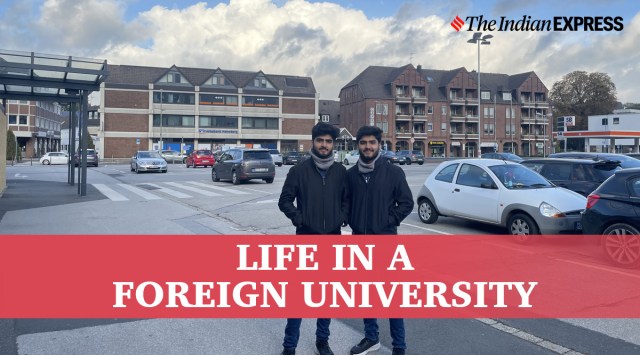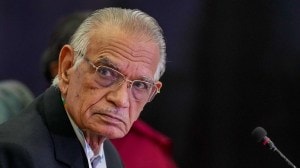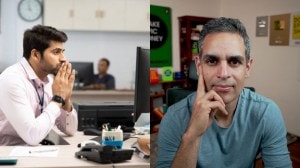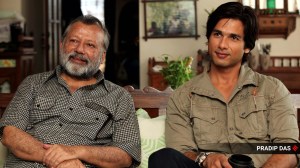Twins share how cracking JEE Advanced can help getting direct admission to German universities
In Germany, instead of 12 years (10+2) of formal education, you have 13 so you have to study one extra year known as ‘studienkolleg’.
 Twins studying in 'studienkolleg' in Germany share their experience of studying at a foreign university
Twins studying in 'studienkolleg' in Germany share their experience of studying at a foreign university (This letter is part of a series by The Indian Express where we bring to you the experiences of students at different foreign universities. From scholarships and loans to food and cultural experiences — students tell us how life is different in those countries and things they are learning other than academics)
— Nikunj and Utsav Agarwal
My brother and I were sure that we wanted to study abroad since class 8, and we narrowed it down to Germany. So, after class 12 we applied to FH Aachen for Mechanical Engineering. I am Nikunj Agarwal from Jabalpur, Madhya Pradesh. I have a twin brother named Utsav and two of us are currently studying in Germany.
Twist in the tale
In Germany, you don’t have 12 years (10+2) of formal education, instead, you have 13 so you have to study one extra year known as ‘studienkolleg’. Once you successfully complete that year, you get admission to the university.
Interestingly, if you have cleared JEE Advanced you can get direct admission to German universities.
What is studienkolleg?
Studienkolleg have around 4-5 courses, T-kurs (T-course) for technical courses, M-kurs (M-course) for medical courses, G-kurs (G-course) for subjects under literature, history, social studies, law, statistics and more, W-kurs (W-course) have subjects such as economics, mathematics, business studies, sociology and more and S-kurs (S-course) have languages.
To study in the studienkolleg, you have to first apply to a university and get a conditional letter from them. Once you get that, you can apply for the studienkolleg and there you have to give an exam to get admitted into it. After getting a studienkolleg, you have to study for one year and then sit for an exam. Once you clear it, you can study at the university.
We are enrolled for T-kurs as we want to be mechanical engineers and study at FH Aachen. My brother and I study at the only studienkolleg that teaches in English. The engineering colleges in Germany are bifurcated into two groups— applied science universities and technical universities. Applied sciences universities are known as FH and technical universities are known as TU.
For our admission, we sent our documents to the university including — class 10 marksheet, class 11 marksheet and sent a mail stating class 12 result. We did not need any language certificate as we were going to study from English to German. We have two teachers for each subject, one teaches us the theory, and the other helps us in problem-solving.
The German way of studying
We have an app called Edupage where the time-table, homework, uploaded, grades, curriculum, payments, photos, everything is uploaded. We also have a social team that interacts with students and deals with their problems.
Once I graduate from studienkolleg, I can also become a student mentor that help students with their problems and earn money as well. In Germany, international students can work up to 20 hours a week. You can’t work while you are in studienkolleg.
We did not apply for scholarships as we have registered with a public university in Germany and the tuition fee is negligible. Therefore, you only have to pay for the semester contribution and your living expenses. It is different for each university and ranges between 200-400 euros. There are many benefits of student contribution such as concession in travel and other things. But, it is at the university level.
Why we chose Germany?
As we have been planning to study in Germany since we were teenagers, we did a lot of research about the country, the courses and many other things. We narrowed it down to this country as we chose to be mechanical engineers and the curriculum in the varsities here is way advanced than most Indian colleges. The biggest automobile companies belong to Germany and they have the most advanced technology.
In Germany, the states are small and cities are, therefore, close by. You can even travel across different countries via train and it does not even cost a lot. We stay in Geilenkirchen and since it is a border town, we have been to the Netherlands already. The people here are polite, pleasant and welcoming.
Differences between India and Germany
Though the level of education is almost similar when it comes to what we are studying right now, there is a huge difference in the level of exposure. Studying in a foreign country you will have to manage everything on your own — cooking, cleaning, expenditure, etc. However, the best aspect is making friends outside of your culture, learning a new language, meeting new people and more.
Compared to India, the teachers here treat you as friends and are close to their students.
When it comes to food, as many Asian reside here, we have enough grocery stores where we get all Indian items. However, they are heavily overpriced. In order to manage our expenses, we have decided on a weekly budget of 50 euros per week.
Over here, we generally cook our food in large quantities so that we eat it at least twice. We avoid making chapattis as it is time-consuming and generally cook rice along with a curry.
The days we have to give more time to our studies, we depend on frozen foods. There are a lot of options available such as frozen pizza where you just have to heat and eat it. It’s fairly affordable as well. One thing that I find surprising is that water is more expensive than beer, for instance, water is around Rs 200 but beer is around Rs 80.
As I came to Germany in October, I don’t miss India much as of now. I love this newfound independent life and the feeling that I am closer to my goal.
Advice for students
For students who want to study in Germany, I would like to suggest they take an initiative and learn the local language. It not only connects you with the Germans but also opens up more avenues in terms of job prospects. Secondly, if you have the means, you should try and study abroad as it widens your perspective, gives you an insight into a lot of things as well as helps you understand people better.
BTech student from Hong Kong | Master’s in public relations student from Canada | MSc in City Planning and Design student from UK | MS Cybersecurity student from USA | Masters in Data Engineering and Analytics student from Germany | Masters in Mechanical engineering student from Italy | Erasmus Mundus journalism student from Denmark | Luxury management student from Switzerland | Master of International Business student from Australia | Filmmaking student from Los Angeles | Studying engineering in Canada
- 01
- 02
- 03
- 04
- 05































